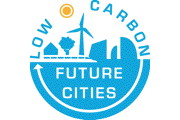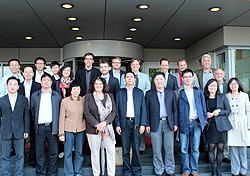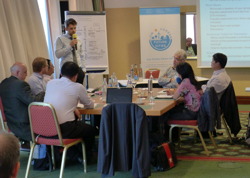
A Sino-German Cooperation for low carbon city development

Third Low Carbon Future Cities Stakeholder Forum
Between September 23 and 26 Chinese and German policy makers, researchers and representatives from the industrial sector met in Düsseldorf to discuss strategies for low carbon development and explored examples of best practice in the Düsseldorf region and in the city of Wuxi (China).
“Strong local actors are needed to continue the path of low carbon development” says Ralf Schüle, Co-Director of the Research Group on Climate, Energy and Transport Policy at the Wuppertal Institute. Watch, what other stakeholders say:
Dialogue between key actors
The Stakeholder Forum is a central element of the Low Carbon Future Cities Project (LCFC). The project aims to bring together key actors from politics, business and the academic sector to promote cross-sectoral dialogue. Participants came from municipalities in Düsseldorf, Neuss, Ratingen and Wuxi. Members of research organisations, such as the Wuppertal Institute, the Wuxi Low Carbon Research Center, the China Meteorological Administration, the CAS Institute of Urban Environment and representatives of companies from Wuxi and Düsseldorf discussed recent research findings on low carbon development in their respective regions.

New impulses from emerging best practice
By combining a conference style event with field trips, the Stakeholder Forum enabled an exchange of knowledge between experts on findings from emerging good practice. As part of the forum, participants visited the “Lausward” gas-steam power plant in Düsseldorf, which will be one of the most modern, efficient and environmentally friendly power plants of its kind in the world. Given that automobile traffic is one of the greatest challenges for growing urban regions, the Chinese participants were particularly interested in presentations on car sharing and e-mobility and were able to test drive e-vehicles.
The consulting concept of the Energy Agency NRW, which is free of charge due to its public funding model, was also of interest to the Chinese participants.

Insights and Impacts
In a group working session at the close of the Stakeholder Forum all participants summarized specific steps that can be implemented in both Wuxi and Düsseldorf. Key action areas include industrial strategies, building efficiency, power/heat and transportation. In the buildings sector combined heat and power plants were of particular interest and were explored in detail given that this form of efficient energy production is not yet applied in China. The aim of this knowledge transfer work is to help China leapfrog its development and avoid mistakes made during the technical modernisation process in Germany.
Further information
| Neil Coles Senior SCP Expert +49 (202) 459 58 56 |
